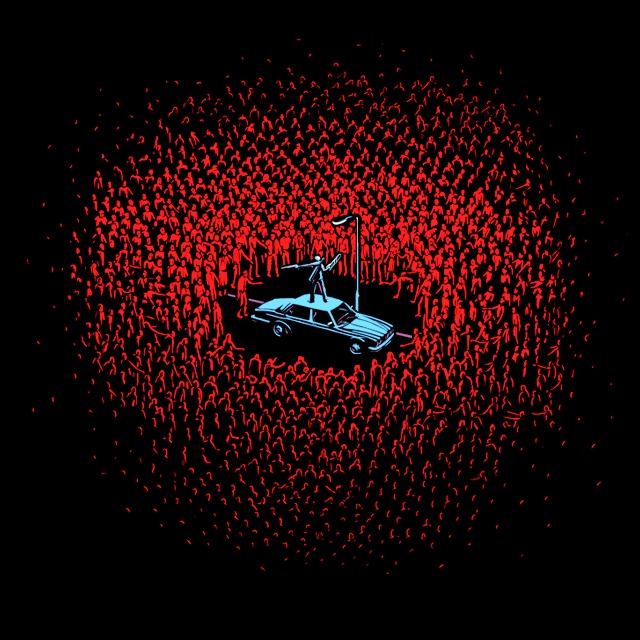They will use CC BY-NC-SA 4.0. Which means it’s not open source, and no-one else can sell replacement cartridges, parts etc.
It might still be a good printer and enjoyed by some, but it really annoys me when companies mix these terms up, almost certainly deliberately.
The only complex part of the hardware is the HP cartridge controller, and you have at least part of the work here: https://hackaday.io/project/176931-hp-printer-cartridge-control-module/details
The cartridges are a HP design. The CC license is the smallest problem here.
CC BY-NC-SA 4.0
Isn’t it about documentation or design rather than code or hardware? Typically CC isn’t used for software or hardware.
from their own page
Open Printer will use the Creative Commons BY-NC-SA 4.0 license for all of its files, including electronics and mechanical design files, firmware code, and the bill of materials.
Thanks I addressed that seconds ago https://lemmy.world/post/36926543/19781367 and my bet is that it’s an omission, so I asked on CS Discord just in case but yes people should be mindful of that before the crowd funding campaign start. Hopefully it’ll be fixed.
Despite the clickbait headline this isn’t open source
Open Printer will use the Creative Commons BY-NC-SA 4.0 license
The NC license isn’t open source, it violates point six of the OSD
Also means that a robust community of people creating businesses to sell variations of the hardware for those who aren’t as maker friendly cannot emerge, correct?
Bc imo that’s what really got early 3d printing off the ground. Like back in 2010 during the reprap days there were all the independent maker storefronts plus a few bigger ones like lulzbot and makerbot (that eventually all got put out of business or bought for toxic modern shit like bambulab because in the modern day under capitalism every single industry has to consolidate until it’s under a few large extremely consumer hostile companies with okay products that just eventually get worse and worse bc there’s no competition or regulation for them but I digress).
Without this industry or a proper open source platform I don’t see how this will succeed
Also means that a robust community of people creating businesses to sell variations of the hardware for those who aren’t as maker friendly cannot emerge, correct?
Correct, that’s just one of the problems with NC licenses.
On the other hand, we also won’t have any chinese clones (legally) that eventually force the original creators to reduce their open contributions.
legally
Therein lies the other issue, unless the creator has millions of dollars to fund lawsuits, if a large company or Chinese company decides to clone it he can do nothing. The only people who will respect the license are individuals and small businesses.
You’re thinking of Amazon Basics.
As people on HN correctly pointed out, it’s not fully open source as their license only permits them to manufacture parts for the printer
Open source is generally about the code, not the hardware, even less manufacturing. OSHW (hence the clarification even though a bit longer) is about the hardware and has specific requirements in order to get the label and ID, e.g https://certification.oshwa.org/de000008.html and process https://certification.oshwa.org/process.html
AFAIK there is no terms that means open source + OSHW but I’d love to learn if there is one and apologize in advance if I missed that.
Anyway as I’m interested in the project, which part is proprietary exactly? In theory as they sell via CrowdSupply https://www.crowdsupply.com/apply it should be both OSHW and open source but I didn’t dig.
It states the code and files will be CC-NC licensed, which isn’t open source.
Thanks, I just checked https://www.crowdsupply.com/open-tools/open-printer and its says “Open Printer will use the Creative Commons BY-NC-SA 4.0 license for all of its files, including electronics and mechanical design files, firmware code, and the bill of materials.” so I don’t think that’s related to the source code but rather the resulting binary of the built firmware.
The latest CrowdSupply project I bought was the PGB-1 and they did realize their firmware source code https://github.com/wee-noise-makers/WNM-PGB1-firmware/ and as GPL3 so I assume they will clarify that before starting the crowd funding campaign. I don’t think they can, even if they wanted to, have a CS project without releasing the source code.
Edit: to be safe I asked on the CS Discord for clarification.
That’s weird. Opening your stuff but not allowing others to make stuff commercially for it?
I would email the editor about the factual inaccuracy in the headline, but they don’t seem to have an editor email address. 🤔
not open source?
Got it in one.
We need to do something about companies misusing the term Open to trick people
Can OSI trademark “open source” and sue companies for not meeting its definition?
Trademark is for customers to know who made a thing, not how it works or what you do with it.
Certification marks are a type of trademark, and is precisely what is wanted here.
I’m biased towards all software being open sourced.
Certificate marks look potentially useful if many more people cared about the value of open source (software freedom). People who do care probably already know common licenses, and custom licenses do not inspire any confidence (law ain’t easy).
Itt’s difficult to tell when people are internationally misleading others saying “open source” because ev ever n many devs just say it to mean you can see the code. Some would sincerely, without ill-intent, call Unreal Engine open source. Would certificate marks promote an understanding?
Will the Ferengi Alliance allow this?
A brother laser printer solves all problems. No dry ink and no subscription. I should have gotten one sooner.
For now : https://consumerrights.wiki/w/Brother_printers_causing_issues_with_third_party_inks
I have one also so I’m invested in how this plays out.
Or a Canon if you can’t afford a Brother.
Prints even without ink, and the software looks and behaves like it’s from 1996 so it’s ridiculously simple. It doesn’t harass you or fill your PC with bloat—the software just hangs out quietly in the background and only pops up when you need to print to inform you of ink levels—it doesn’t bother you with bullshit ever.
The only modern feature it has is network connectivity, which is honestly the only modern feature I need in a printer, so that I can print from my phone without having to boot up my PC first. And that’s even simpler than printing from PC because you don’t even need a driver. Just hit the Print option in Android and start printing.
Yup. I’m on my second now because of an international relocation, but the first one is still going strong at my dad’s. Bought that thing 14 years ago, was the first series that came with network enabled printing instead of USB (though it has a port).
Bought a 19-year-old secondhand Brother printer 2 years ago, still working flawlessly, and everything (drum, toner, etc.) is available when needed.
While I’d personally love to see an open color lazer printer more. (Less wasteful and more rugged) This is still fantastic! It’s always been a saying of mine that modern printers are the torture devices of our time. This could go a long long way to right a lot of these wrongs. I will definitely have to check this out.
While I’d personally love to see an open color lazer printer more. (Less wasteful and more rugged)
I use a black-and-white laser printer, but if I were going to use a color laser printer, I’d like to have an open color laser printer simply because I’d like to have a printer that isn’t dumping printer tracking dots into each image I print.
How do you know which models do and dont? Print tracking dots.
https://www.eff.org/pages/list-printers-which-do-or-do-not-display-tracking-dots
Specifically note the updates
(Added 2015) Some of the documents that we previously received through FOIA suggested that all major manufacturers of color laser printers entered a secret agreement with governments to ensure that the output of those printers is forensically traceable. Although we still don’t know if this is correct, or how subsequent generations of forensic tracking technologies might work, it is probably safest to assume that all modern color laser printers do include some form of tracking information that associates documents with the printer’s serial number. (If any manufacturer wishes to go on record with a statement to the contrary, we’ll be happy to publish that here.)
(Added 2017) REMINDER: IT APPEARS LIKELY THAT ALL RECENT COMMERCIAL COLOR LASER PRINTERS PRINT SOME KIND OF FORENSIC TRACKING CODES, NOT NECESSARILY USING YELLOW DOTS. THIS IS TRUE WHETHER OR NOT THOSE CODES ARE VISIBLE TO THE EYE AND WHETHER OR NOT THE PRINTER MODELS ARE LISTED HERE. THIS ALSO INCLUDES THE PRINTERS THAT ARE LISTED HERE AS NOT PRODUCING YELLOW DOTS.
Yes, I have a black and white brother lazer printer. That thing is a workhorse. Still gives problems every so often, but far more reliable than any inkjet printer I’ve ever had. And far less costly to maintain.
How they can say it’s DRM free ink if they use non refillable HP cartridges? Ok, the built-in DRM isn’t enforced, but HP has the worldwide exclusive in producing the cartridges, and its integrated printhead is literally the shittiest one you can find in the market. Yes, you can drill the tank and add ink, but that shitty printhead is not designed to last more than 1.5x the original life. And 100% of the “compatible” cartridges are refilled old ones, coming from ewaste, so they will break/clog even sooner.
If anyway they had to reverse engineer proprietary protocols to talk with the proprietary printhead, couldn’t they use the printhead of a $50 Epson? Way more reliable and at least it has 4 colors instead of tricolor for black.
Ps: if I remember right on the box of HP cartridges there’s some legal language like “licensed to be used only with approved HP® products”, so can they sell a product that uses such cartridge?
@Wispy2891
This is the main problem. The #OpenPrinter project is cool, but depending on HP cartridges breaks it. Unless the team has a source of ‘compatible’ cartridges which are not refilled HPs. Then, it depends on the price and quality of those.
@ardi60
Someone’s getting assassinated over this.
Nobody is because its not actually open source
Does it still rat you out to the feds?
That’s usually only an issue with color laser printers.
That is not true even a little bit. Look at any inkjet paper under a microscope made after the mid 2000s.
I still disbelieved than we are living in the timeline than the fucking printers are DMR restricted.
FUCKING…
PRINTERS…
You can get inkjet printers that don’t have restrictions on the ink. They cost more, though.
The reason printer manufacturers are so hell-bent on being a pain in the ass with the ink is because they’re using a razor-and-blades model. They’re selling you the printer at a lower price than they really should, if their price reflected their costs, with the expectation that they’ll make their money back when you buy ink at a higher price than you really should, because people pay more attention to the the initial price of the printer than to the consumable costs.
Same way you can get unlocked cell phones instead of network-locked cell phones with a plan. Gaming PCs instead of consoles. It’s not that they’re unavailable, but you’re gonna have to accept a higher up-front cost, because you’re not getting a subsidy from the manufacturer.
Canon sells a line of inkjet printers that just take ink from a bottle. No hassles with restrictions on ink supply there. The ink is cheap, and there are third-party options that are even cheaper readily available…but you’re going to pay full price for the printer.
https://www.usa.canon.com/shop/printers/megatank-printers
Their lowest-end “MegaTank” printer is $230:
https://www.usa.canon.com/shop/p/megatank-pixma-g3290
A pack of third-party ink refill bottles is $15, and will print (using Canon’s metrics), about 7,700 color pages and 9,000 black-and-white pages:
https://www.amazon.com/Refill-Compatible-Bottles-MegaTank-4-Pack/dp/B0DSPSS5W7
Compatible GI-21 Black Ink Bottle Up to 9,000 pages, GI-21 Cyan/Magenta/Yellow Ink Bottles Up to 7,700 pages
On the other hand, Canon’s lowest-end “cartridge” printer, where they use the razor-and-blades model, is $55.
https://www.usa.canon.com/shop/p/pixma-ts3720-wireless-home-all-in-one-printer
But you rapidly pay for it with the ink; It looks like they presently sell a set of replacement cartridges for $91. And that set will print a tiny fraction of the number of pages that the above ink bottles will print.
page yield of 400 Black / 400 Color pages per ink cartridge set and cost of $90.99 for a value pack of PG-285(XL) and CL-286(XL) ink cartridges (using Canon Online Store prices as of June 2025).
So if you really do want to do photo prints with an inkjet without dealing with all the DRM-on-ink stuff, you can do it today. But…you’re going to pay more for the printer.
All that being said, I do think that lasers are awfully nice in that you don’t need to deal with nozzles clogging. You can leave a laser printer for years and it’ll just work when you start it up. If you don’t need photo output, just less hassle.
I love that they also designed some ways to save space. Most of us no longer live in a world where we print multiple times a week. Printers just sit around and take up space while they do nothing for months on end.
This thing is small, wall mountable, and you don’t need to store flat packed paper.
These folks should win a red dot design award for this. Really smart industrial design all around. They really solved a lot of different problems, not just the ink problem.
This is great news!
If it looks like the example photos, it’s a more elegant solution. I’m not fully sold on the paper rolls vs the standard reams of paper, but being able to package the printer like that looks amazing
Whoever made this now needs Freedom 🦅



















